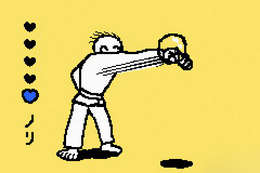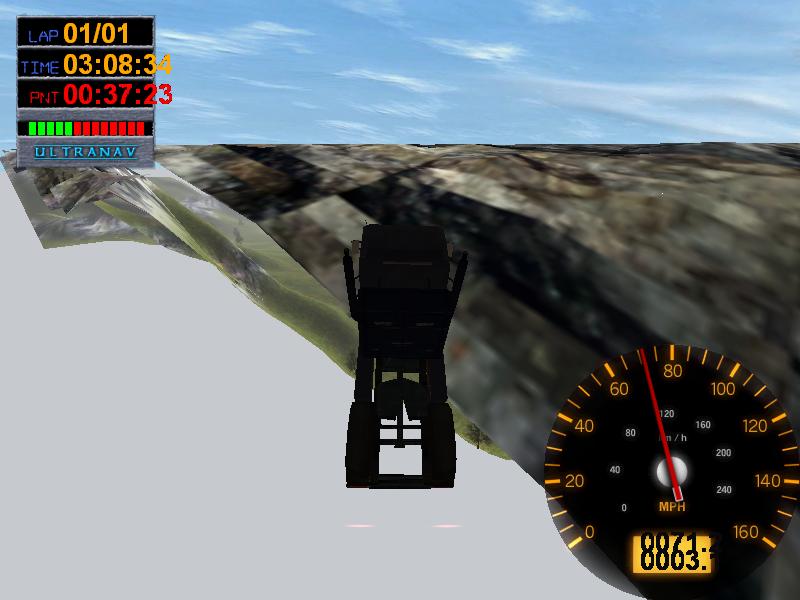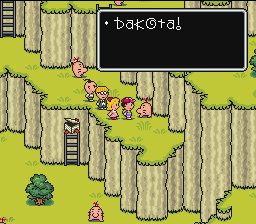Gameplay and Game Narrative: Another Forum Post Rehash
By Pepsiman 14 Comments
As many Americans were probably wont to do, I ended up heading back home earlier this week to spend time with my family on Memorial Day. Although we no longer have any living relatives who fought in a war, the holiday is always a good opportunity for us to sit down, have a barbecue, and bond in the midst of all of our busy lives. After all, I'm normally a Japanese student by day, my mother a legal advocate for disabled kids, my older sister an ever persistent and productive worker despite her own mental disabilities, and my father a plumber with his own business. Suffice it to say that we get together when either our schedules naturally allow us to or we force them to do so, but that these breaks are rare occasions to sit down and just talk and do whatever.
I bring this all up because it was on Memorial Day that my mother and I ended up talking about Persona 4, partly because I had a copy of the game's Japanese art book sitting nearby, having only recently been rediscovered in my bedroom. My mom has always been one to respect my love of games, but at a distance. Part of it is a generation gap, part of it is a lack of intuitiveness for her, and part of it is simply the culture and mentality behind a lot of games. As a sociology major and the proud owner of a law degree, she often needs her entertainment to at least have some intellectual engagement in order to be enjoyable and games, although improving in that arena, don't have a consistent history of doing so, at least in an accessible way to the masses. While I greatly treasure a "smart" game as well, it's less of an issue for me since I grew up with games as a means of escapism during a rather emotionally bumpy childhood, so I'm better able to appreciate games on rawer, visceral levels when need be.

Ironically enough, that big old story was not what I originally wanted to call to your attention today, especially since I didn't expect it to turn into a multi-paragraph behemoth. But still, I wanted to retell it for the context of this reprinted forum post I provide below. Coming from a thread in which the topic starter tries to propose a plot he feels is original and could help stymie the maligned trend of relying heavily on cliches in game narratives, I decided to provided my own thoughts on stories in games and how they're married to the gameplay mechanics to make the final product what they are. It's a subject I think about a lot, but I suppose the conversation I had with my mother earlier in this week made the subject fresh enough to warrant another bit of rambling from me. It also probably helped that the original poster reminded me of myself years and years ago, when, as a gamer, I wanted nothing more than for every game ever to be original and innovative, traits I still appreciate within a more accommodating viewpoint these days. So here my response finally is, word for word, and for once it's not actually about Japan. At least not directly.

It's not normally the ideas at their core that make or break a story-focused game's potential, but rather their execution. A lot of people have common interests in literary themes that appeal and relate to things that they can understand in their daily lives. It's why you see a lot of basic points transcend any number of stories: they need some sort of common ground with the viewer, player, reader, whoever and time-worn tropes are one way of doing it. Things normally only start getting iffy if the execution of those premises is stale or cliche, since it then shows that the creators are unable to spin their narrative in a way that still appeals to their audience despite some of the familiar territory it covers.
Take Mass Effect, for example. I can't say that I've personally completed it myself, but from my perspective, the series has a lot of the fundamentals of your average space opera. Intriguing alien races, exotic locations, galactic politics, and, of course, a human hero, to give the audience a perspective from which they can watch the events unfold and, by proxy, relate to them. By these tenants alone, it'd be easy to conclude that Mass Effect games graft a lot of their plots' individual facets from most every piece of science fiction before it, from Star Wars to Star Trek to arguably even something like Ghost in the Shell. The reason why it still stands out is that dialog and the personalities interjected into its flow make for a dynamic experience for the players. You don't get to just watch Commander Shepard kick ass and wax rhetoric from afar; you're an active participant in it, an omnipresent force able to influence situations (albeit in a scripted way) on your own terms, in the manner that you'd use personally if you were actually there. It also doesn't hurt that Bioware knows their stuff when it comes to RPGs and has the gameplay to back it up, too, of course.

My point is that I don't see a whole lot of actual potential execution that your game has at this point to transcend the self-admittedly worn territory the plot seems to exhibit by itself. Off the top of my head, here are some games I can already think of that cover a lot of similar ground:
- Tales of Symphonia, Abyss, etc. Lots of religious and political dissections regarding whether the established moralities really are good for humanity. Characterizations aplenty of people on all sides of a given conflict with plausibly explained motivations for why they do what they do, both good and bad.
- Shin Megami Tensei: Devil Survivor. Depending on which plot route you take, the game's ending can be very heavily about working with or against the major religious order in place and the implications of those decisions. As with other Megami Tensei games in general, though, the overarching design and gameplay mechanics are generally skewed to have a skeptical tone. There is a reason why God's minions such as the angels are usually portrayed as major jerks in these games.
- Fallout 3. Naturally, a lot of decision making to be had in this game, with the game acknowledging that regardless of whether something is good or evil, there are inherent pluses and minuses to be had in the charades. It's not as though some people chose to set off the nuke simply because they were jackasses.
- Shadow of the Colossus. While you can't influence the plot, it is definitely one about the ambiguities of what good and evil really are and the influences it can have on the human soul's integrity one way or another.
- Grand Theft Auto IV. As a character who's often put into situations that can't really end all that well one way or another, Niko Bellic sometimes has a lot on his plate. Who you choose to associate and, by extension, who you choose to kill, has consequences both tangible and intangible, with a lot of the major ones forcing automatic game saves to occur immediately after they happen. Just like real life, sometimes you have to have your cake in that game and eat it, too, even if that cake turned out horribly.
- Alpha Protocol. Actual quality issues aside, it seems to be a lot like the other Western games in this list in that it takes your decisions and forces you to live with the consequences without giving you a chance to restart. Apparently this can result in pretty drastic changes in the plot affecting everything from the ending to who you even meet along the way.

In the end, there's no real reason why I had to make the post this long or critical other than for my own personal sake of wanting intellectual engagement and the chance to play some Devil's Advocate. But still, hopefully this might give you some ideas on how to move forward (if you're genuinely serious about all this) and why people will still have legitimate questions anyway. All good creators strive to be the best and original in their own way, but that's not possible without outside feedback, either, so don't be surprised if people keep calling you out on what you've presented if you're not ready to back up your ideas with more of them, ideally fleshed-out.
-----
